
Leipzig: Germany's Hidden Gem
Leipzig, a city located in eastern Germany, is often referred to as the 'New Berlin' due to its vibrant cultural scene and dynamic atmosphere. Known for its rich history, Leipzig played a pivotal role in the peaceful revolution that led to the fall of the Berlin Wall. The city's old town is a mix of well-preserved medieval buildings and modern architecture, offering a unique blend of the past and present. For those interested in music, Leipzig is a haven. It was home to famous composers like Johann Sebastian Bach and Felix Mendelssohn. The Leipzig Gewandhaus Orchestra and the Opera House are must-visit sites for classical music lovers. The city also hosts numerous music festivals throughout the year, making it a lively destination for both classical and contemporary music enthusiasts. Leipzig is also a paradise for art lovers. The Spinnerei, a former cotton mill turned into an art complex, houses galleries, artist studios, and exhibition spaces. The Museum of Fine Arts and the Grassi Museum are other notable spots that showcase a wide range of artworks and historical artifacts. Additionally, Leipzig's vibrant street art scene adds a colorful and modern twist to the city's artistic landscape. Outdoor enthusiasts will enjoy Leipzig's many parks and green spaces. The Auenwald forest and the Leipzig Riverside Forest offer extensive trails for hiking and cycling. The city's canals and lakes provide opportunities for boating and water sports. Leipzig Zoo, one of the oldest in the world, is another popular attraction that offers a fun and educational experience for visitors of all ages.
Local tips in Leipzig
- Visit the St. Thomas Church to see where Johann Sebastian Bach worked and is buried.
- Take a walk through the Plagwitz district to experience Leipzig's vibrant street art scene.
- Try local Saxon cuisine at one of the traditional restaurants in the old town.
- Explore the Spinnerei art complex for a diverse range of contemporary art exhibitions.
- Rent a bike to explore the extensive network of cycling paths in and around the city.
- Don't miss the panoramic view from the top of the Monument to the Battle of the Nations.
- Plan your visit during one of Leipzig's many music festivals for a lively cultural experience.
Neighbourhoods in Leipzig
Leipzig: Germany's Hidden Gem
Leipzig, a city located in eastern Germany, is often referred to as the 'New Berlin' due to its vibrant cultural scene and dynamic atmosphere. Known for its rich history, Leipzig played a pivotal role in the peaceful revolution that led to the fall of the Berlin Wall. The city's old town is a mix of well-preserved medieval buildings and modern architecture, offering a unique blend of the past and present. For those interested in music, Leipzig is a haven. It was home to famous composers like Johann Sebastian Bach and Felix Mendelssohn. The Leipzig Gewandhaus Orchestra and the Opera House are must-visit sites for classical music lovers. The city also hosts numerous music festivals throughout the year, making it a lively destination for both classical and contemporary music enthusiasts. Leipzig is also a paradise for art lovers. The Spinnerei, a former cotton mill turned into an art complex, houses galleries, artist studios, and exhibition spaces. The Museum of Fine Arts and the Grassi Museum are other notable spots that showcase a wide range of artworks and historical artifacts. Additionally, Leipzig's vibrant street art scene adds a colorful and modern twist to the city's artistic landscape. Outdoor enthusiasts will enjoy Leipzig's many parks and green spaces. The Auenwald forest and the Leipzig Riverside Forest offer extensive trails for hiking and cycling. The city's canals and lakes provide opportunities for boating and water sports. Leipzig Zoo, one of the oldest in the world, is another popular attraction that offers a fun and educational experience for visitors of all ages.
When is the best time to go to Leipzig?
Iconic landmarks you can’t miss
Monument to the Battle of the Nations
Explore the colossal Monument to the Battle of the Nations in Leipzig, a towering memorial commemorating Napoleon's defeat and offering panoramic city views and historical insights.
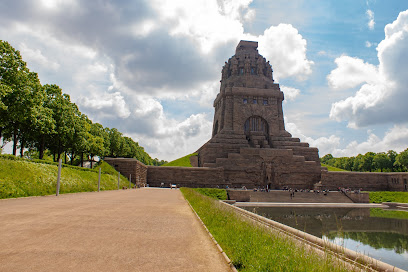
Marktplatz Leipzig
Discover Leipzig's vibrant heart at Marktplatz, a historic square brimming with architectural gems, lively markets, and cultural events, all anchored by the majestic Old Town Hall.
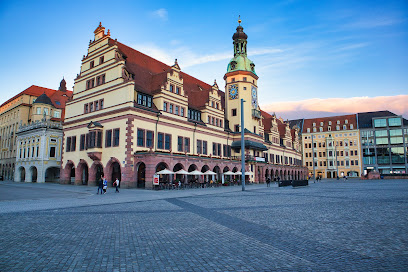
Clara-Zetkin-Park
Escape to Leipzig's Clara-Zetkin-Park: A vibrant green oasis offering tranquil landscapes, cultural events, and historical monuments for a refreshing urban retreat.
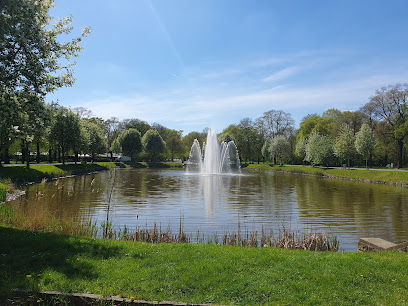
Leipzig Panometer
Experience art on a grand scale at the Leipzig Panometer, where history, nature, and culture come alive in breathtaking 360° panoramic installations by Yadegar Asisi.

St. Nicholas Church
Explore the stunning Baroque architecture and rich history of St. Nicholas Church, a highlight of Leipzig's cultural landscape.
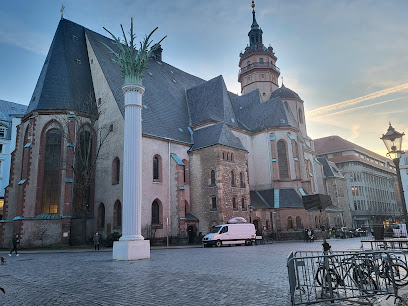
St. Thomas Church
Discover the historic St. Thomas Church in Leipzig, a stunning Lutheran church renowned for its Bach connections and exquisite architecture.

Mädler-Passage
Discover the elegance of Mädrer-Passage, Leipzig's premier shopping destination and historical landmark, where culture meets luxury.
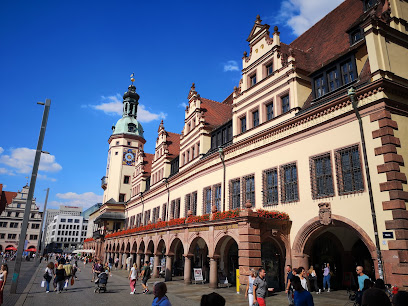
Museum of fine arts
Explore masterpieces from the Middle Ages to today at the Museum of Fine Arts Leipzig, showcasing a diverse collection of European art in a stunning modern setting in the heart of Leipzig.
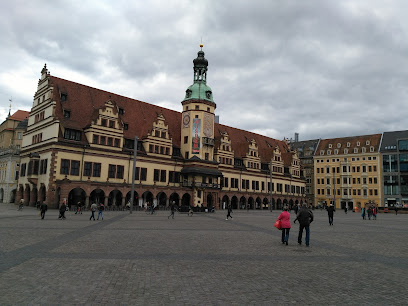
Botanical Garden Leipzig
Discover Germany's oldest botanical garden in Leipzig, a vibrant oasis showcasing diverse plant life from around the world, offering education, research, and tranquil beauty.
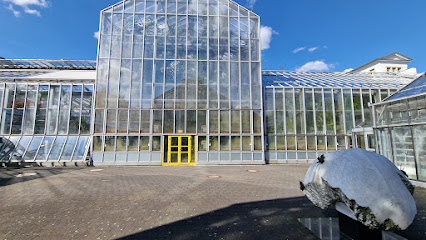
Forum of Contemporary History Leipzig
Explore Germany's journey from division to unity at the Forum of Contemporary History Leipzig, a captivating museum offering free admission and insightful exhibits.
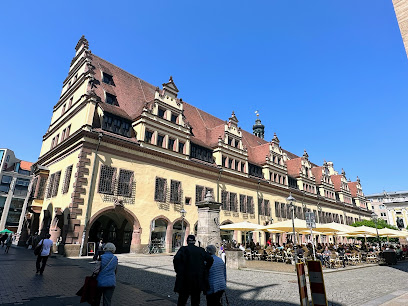
Stadtgeschichtliches Museum Leipzig, Altes Rathaus
Explore Leipzig's captivating history at the Altes Rathaus, a stunning Renaissance landmark housing the Stadtgeschichtliches Museum, offering a journey through the city's rich past.
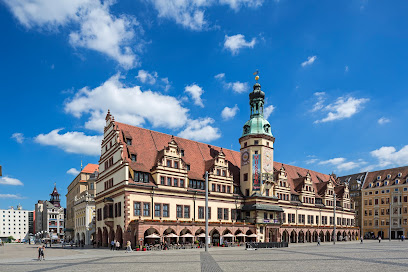
Mendelssohn-Haus
Explore the world of Felix Mendelssohn Bartholdy at his beautifully restored Leipzig home, a vibrant museum showcasing his life, music, and enduring legacy in the heart of the city.
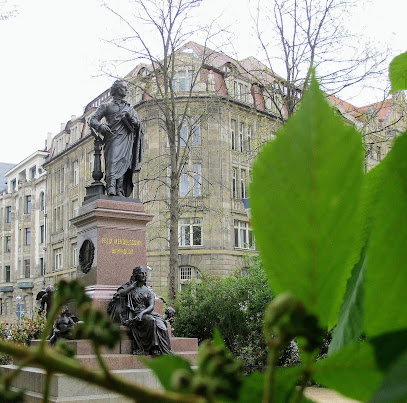
Mendebrunnen
Experience the timeless beauty of Leipzig's Mendebrunnen, a neo-baroque masterpiece on Augustusplatz, where art, history, and culture converge in a stunning display of allegorical splendor.
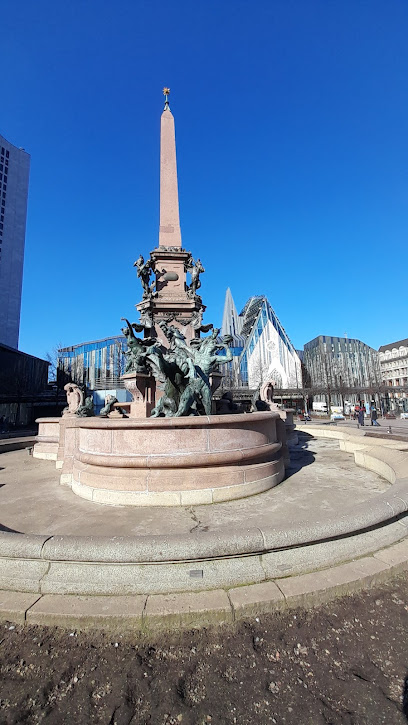
Russische Gedächtniskirche
Discover the Russian Memorial Church in Leipzig: a stunning architectural gem, a symbol of reconciliation, and a poignant reminder of the Battle of the Nations.
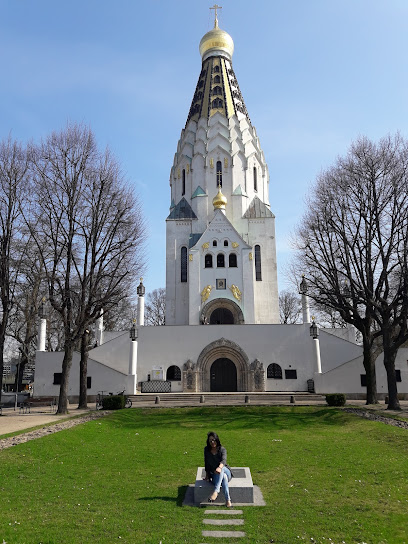
Bach-Museum Leipzig
Discover the life and musical genius of Johann Sebastian Bach at this interactive museum in Leipzig, featuring original manuscripts, Baroque instruments, and engaging exhibits for all ages.
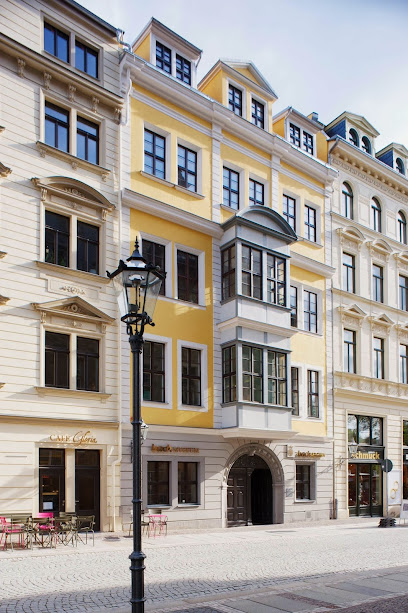
Unmissable attractions to see
Zoo Leipzig
Explore the enchanting Zoo Leipzig, where wildlife conservation meets adventure in a captivating natural habitat.
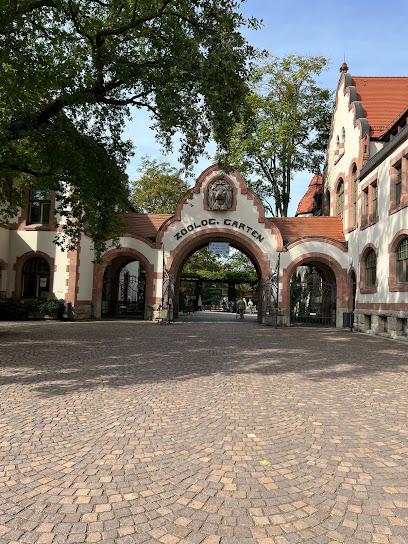
Marktplatz Leipzig
Discover the vibrant Marktplatz in Leipzig, a historical market square offering rich culture, stunning architecture, and lively local markets perfect for tourists.
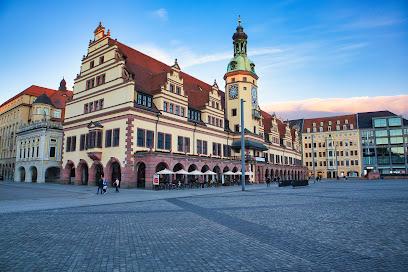
Red Bull Arena
Explore the Red Bull Arena in Leipzig - a vibrant hub for sports, culture, and unforgettable experiences that showcase the city's passion for football.
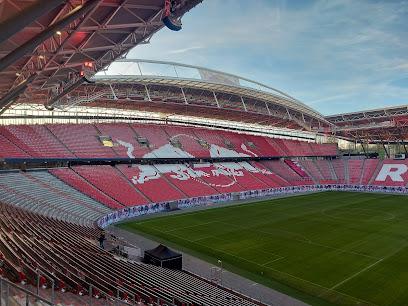
Clara-Zetkin-Park
Explore Clara-Zetkin-Park, a lush green haven in Leipzig perfect for relaxation, picnics, and enjoying nature's beauty amidst the city's vibrant culture.
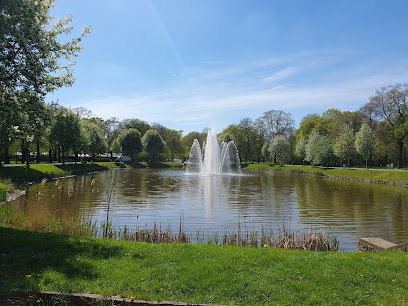
Leipzig Panometer
Discover the enchanting Leipzig Panometer, where art and history coalesce in breathtaking panoramic exhibitions showcasing the world like never before.
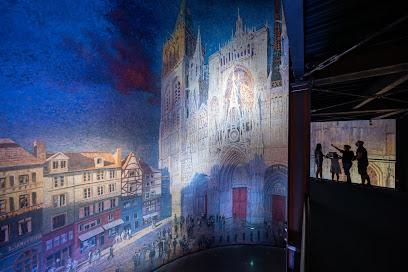
Gewandhaus
Discover Leipzig’s Gewandhaus, a premier concert hall blending rich musical history with stunning architecture and world-class performances.
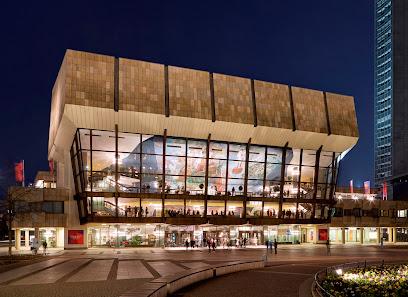
St. Nicholas Church
Explore St. Nicholas Church in Leipzig, a stunning neo-Romanesque architectural wonder steeped in history and spirituality.
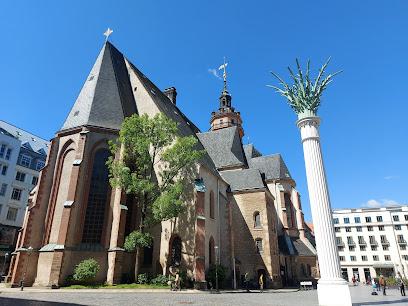
St. Thomas Church
Explore the rich history and architectural beauty of St. Thomas Church in Leipzig, a landmark of cultural heritage and musical tradition.
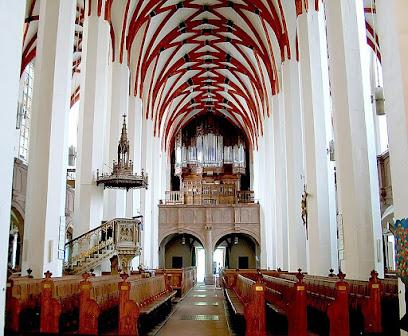
Moritzbastei
Discover Moritzbastei, Leipzig's cultural hub offering live music, a café atmosphere, and a rich historical backdrop for an unforgettable experience.
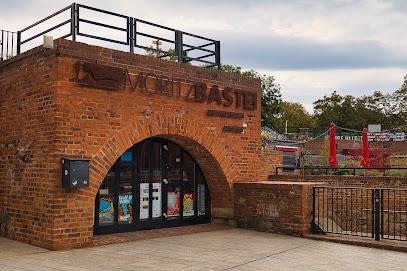
Leipzig Museum of Fine Arts
Immerse yourself in the artistic treasures of the Leipzig Museum of Fine Arts, showcasing timeless masterpieces and contemporary creations in a stunning setting.
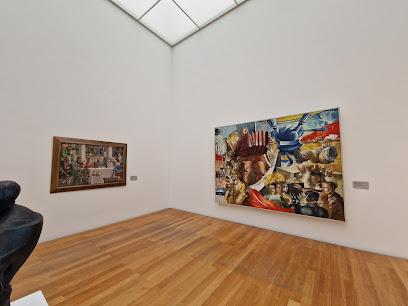
Leipziger Auwald
Explore the enchanting Leipziger Auwald, a serene national forest and nature preserve offering nature lovers and active travelers a perfect escape in Leipzig.
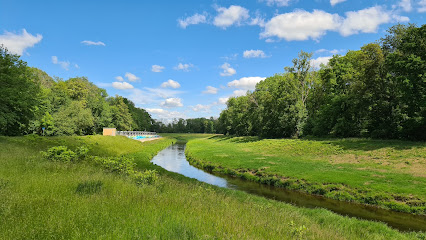
Oper Leipzig
Experience the magic of Oper Leipzig, an iconic opera house offering stunning performances and rich cultural heritage in the heart of Germany.
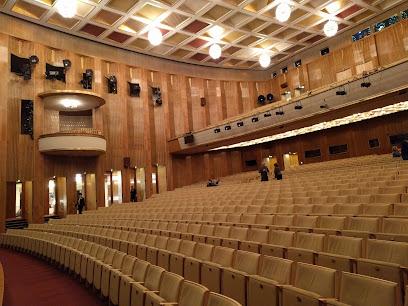
Friedenspark
Explore the serene beauty of Friedenspark, Leipzig's tranquil oasis filled with lush greenery and vibrant floral displays, perfect for relaxation and leisure.
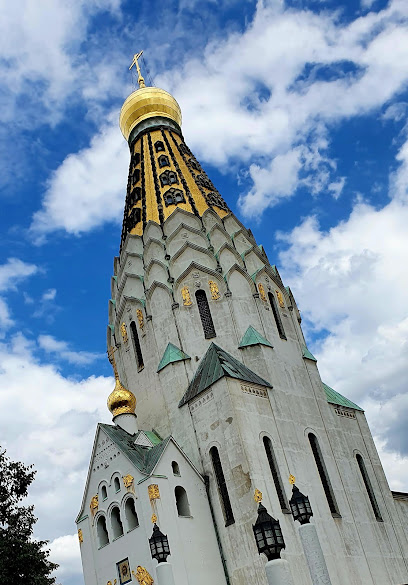
Grassi Museum of Applied Arts
Explore the Grassi Museum of Applied Arts in Leipzig, showcasing centuries of decorative art and design in a stunning architectural setting.

Johannapark
Experience the serene beauty of Johannapark in Leipzig, where lush greenery and tranquil pathways create a perfect escape for relaxation and leisure.
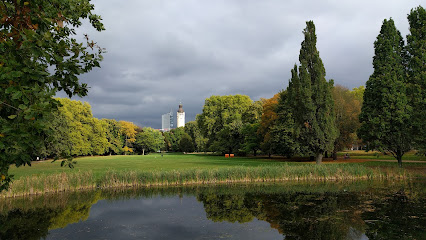
Essential places to dine
Auerbachs Keller
Discover Auerbachs Keller: Where Culinary Tradition Meets Literary History in Leipzig's Heart.
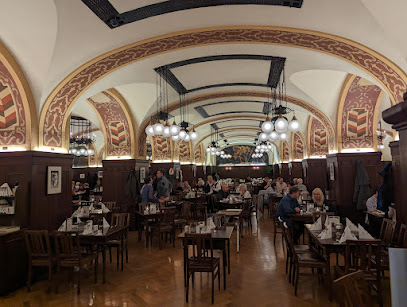
HANS IM GLÜCK - LEIPZIG Augustusplatz
Discover gourmet burgers in a cozy atmosphere at HANS IM GLÜCK - Leipzig's premier destination for food lovers.
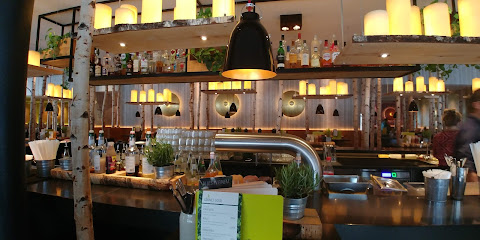
Leos Brasserie
Discover the charm of Leos Brasserie in Leipzig – where exquisite cuisine meets a warm and inviting atmosphere.
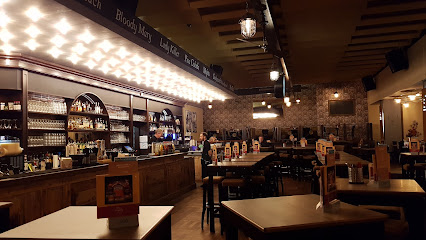
L'Osteria Leipzig
Experience authentic Italian cuisine at L'Osteria Leipzig - where every meal is a delicious journey through Italy's culinary traditions.
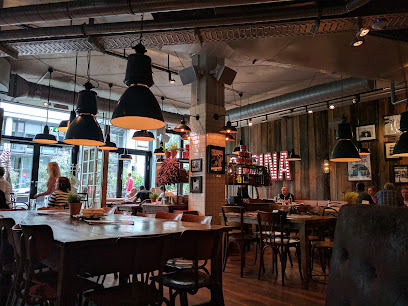
Ratskeller der Stadt Leipzig GmbH
Experience authentic German cuisine and craft beers at Ratskeller der Stadt Leipzig – where tradition meets taste in a historic beer hall setting.
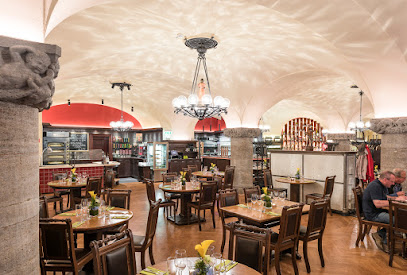
Restaurant Cafe Madrid
Savor the vibrant flavors of Spain at Restaurant Cafe Madrid, where authentic dishes meet warm hospitality in Leipzig's lively atmosphere.
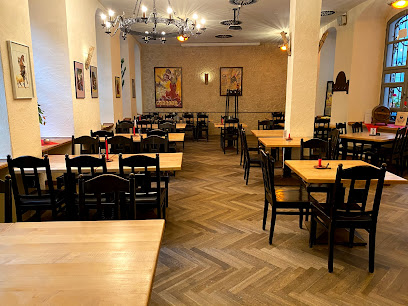
Wenzel Leipzig
Discover authentic Czech cuisine at Wenzel Leipzig, where traditional flavors meet warm hospitality in the heart of Germany's cultural hub.
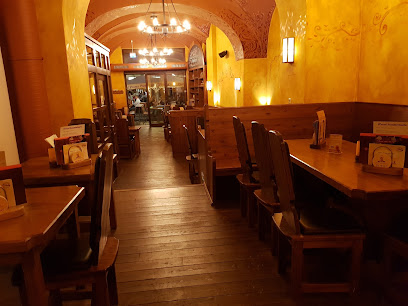
Thüringer Hof
Discover authentic German cuisine at Thüringer Hof in Leipzig – where tradition meets taste in a cozy setting.
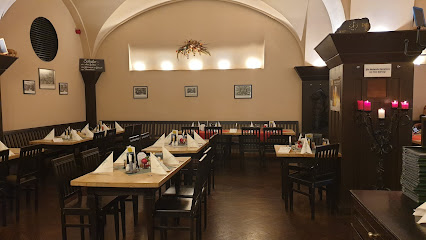
IMPERII
Experience the elegance of IMPERII in Leipzig - where gourmet cuisine meets vibrant nightlife in a chic setting.
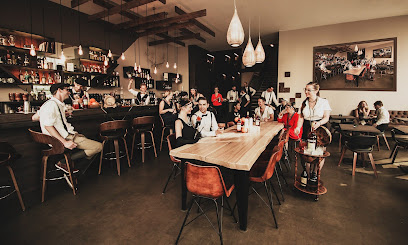
Lerchennest Leipzig
Savor authentic German cuisine at Lerchennest Leipzig – where tradition meets taste in a cozy café setting.
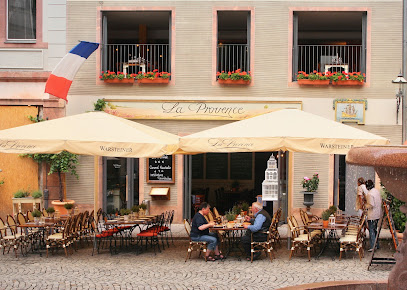
Zills Tunnel
Experience authentic German cuisine at Zills Tunnel in Leipzig – where tradition meets innovation in every delicious bite.
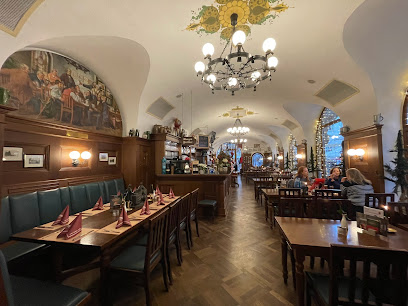
Restaurant Weinstock Leipzig
Discover authentic German cuisine and exquisite wines at Restaurant Weinstock Leipzig, where tradition meets elegance in every dish.
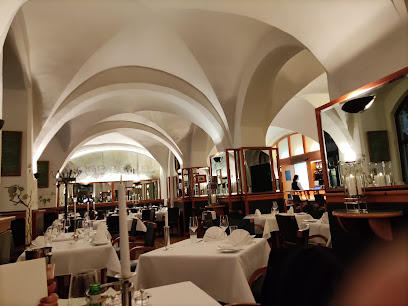
Restaurant Zunftkeller ( Inhaber A . Singh )
Savor the best of German culinary traditions at Restaurant Zunftkeller in Leipzig - where every meal is an unforgettable experience.
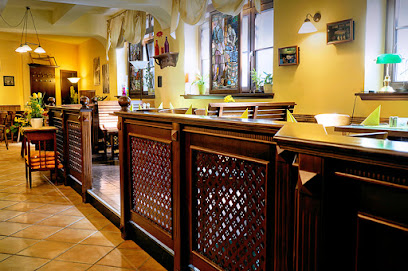
Max Enk
Experience the finest German cuisine at Max Enk - where every meal is a celebration of flavor and elegance in Leipzig.
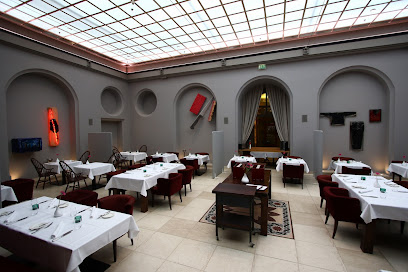
Johann S. Restaurant & Weinbar
Savor authentic German cuisine and fine wines at Johann S. Restaurant & Weinbar in Leipzig's vibrant culinary scene.
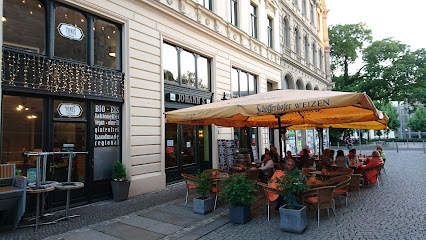
Markets, malls and hidden boutiques
Promenaden Hauptbahnhof Leipzig
Explore the bustling Promenaden Hauptbahnhof Leipzig, a unique shopping destination blending historic charm with modern retail experiences.
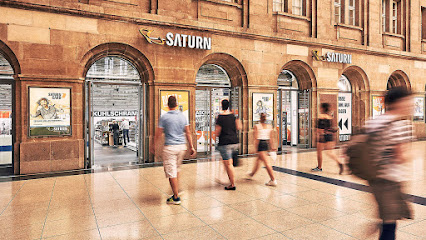
Primark Leipzig
Explore trendy styles at Primark Leipzig, the go-to destination for affordable fashion in the heart of the city.
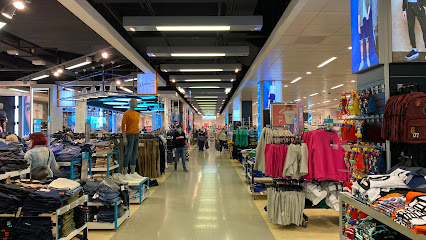
GALERIA Leipzig
Explore GALERIA Leipzig - your ultimate shopping destination in the heart of the city, blending local charm with global brands for an unforgettable retail experience.
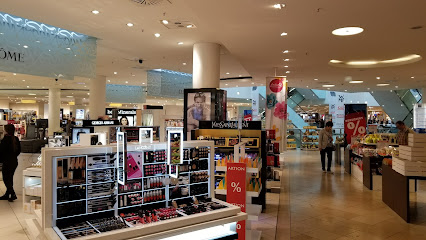
Petersbogen
Explore Petersbogen, Leipzig's top shopping mall, where fashion meets culture in a vibrant atmosphere filled with diverse shops and delightful dining options.
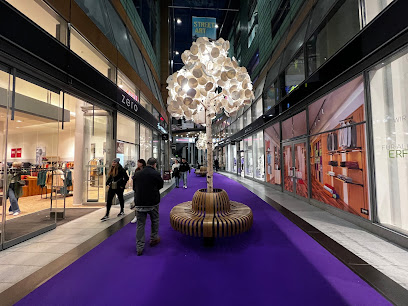
Breuninger Leipzig
Discover the essence of fashion at Breuninger Leipzig, where luxury meets style in a vibrant shopping environment.
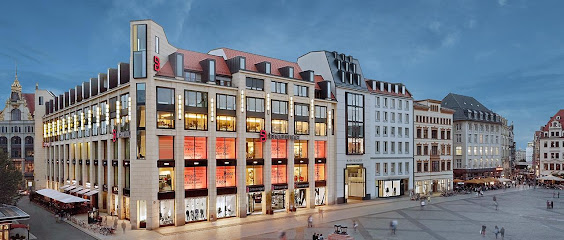
EMP Store Leipzig
Discover unique clothing and music memorabilia at the EMP Store Leipzig, a must-visit destination for fans and fashion enthusiasts.
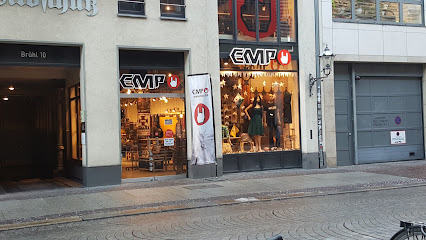
Zalando Outlet Store Leipzig
Experience a fashion paradise at Zalando Outlet Store Leipzig, where great style meets unbeatable prices for the whole family.
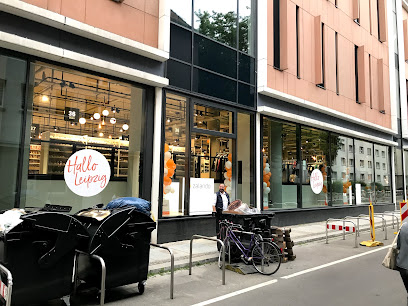
LUSH Cosmetics Leipzig
Explore LUSH Cosmetics Leipzig, where creativity meets sustainability in a vibrant selection of handmade beauty products and unique gifts.
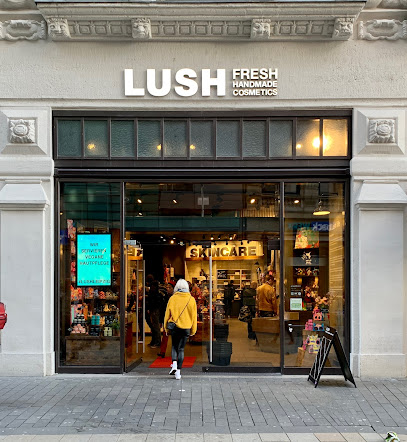
Strohsack-Passage
Experience the vibrant shopping and cultural atmosphere at Strohsack-Passage, Leipzig's premier shopping mall located in the city's heart.
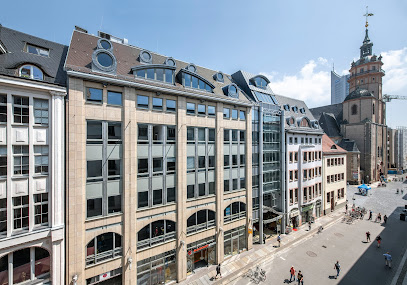
Marktgalerie
Explore the lively Marktgalerie in Leipzig, where shopping meets culture in a vibrant urban setting, perfect for tourists seeking local experiences.
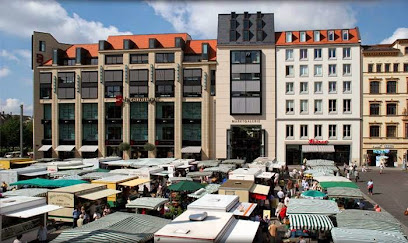
Gems Leipzig Vintage & Secondhand Boutique
Unearth unique fashion treasures at Gems Leipzig, where vintage meets contemporary in a sustainable shopping experience.
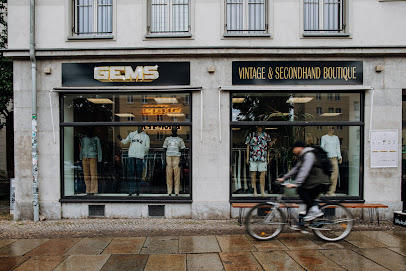
DarXity - Gothic Shop - Leipzig
Explore the captivating world of Gothic fashion at DarXity in Leipzig, your ultimate destination for unique clothing and accessories.
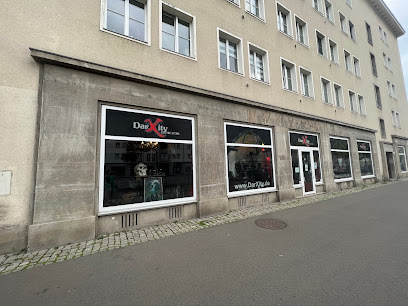
Reserved
Discover the ultimate shopping experience at Reserved in Leipzig, featuring stylish clothing for men, women, and children in a vibrant setting.
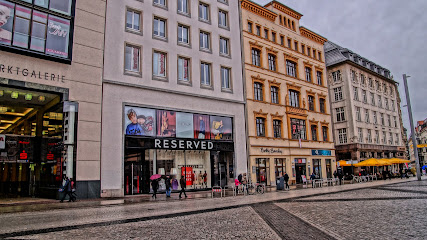
Elbenwald
Explore Elbenwald in Leipzig for a magical shopping experience filled with unique gifts and pop culture treasures.
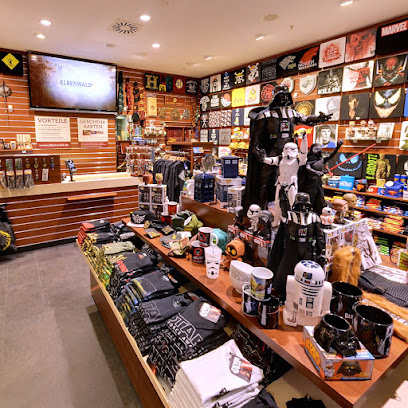
Urban Outfitters
Discover unique fashion and lifestyle products at Urban Outfitters in the heart of Leipzig, where vintage meets contemporary style.
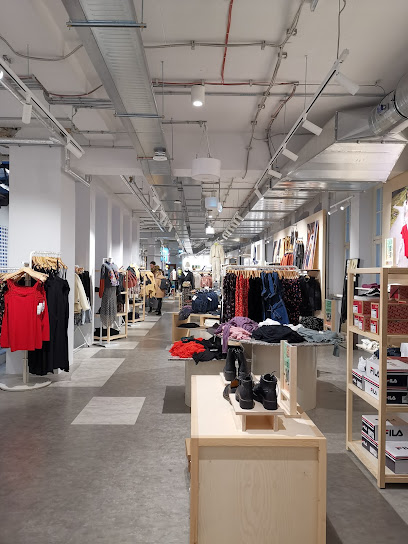
Essential bars & hidden hideouts
Kildare City Pub
Discover Kildare City Pub in Leipzig for an authentic Irish atmosphere, delicious food, and vibrant sports entertainment.
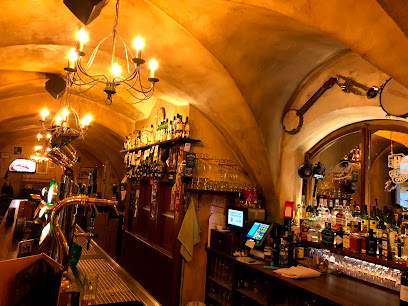
Killiwilly
Experience the vibrant spirit of Ireland in Leipzig at Killiwilly, where hearty meals and great beers await in a lively pub atmosphere.
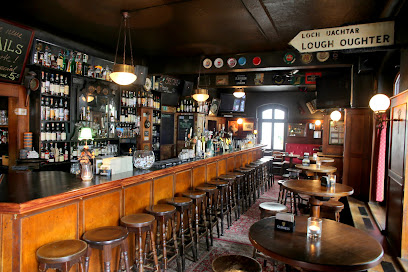
Vodkaria
Discover the vibrant gastropub experience at Vodkaria, Leipzig's premier destination for unique vodkas and lively nightlife.
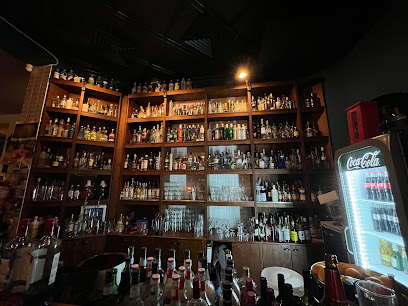
IMPERII
Discover the elegance of IMPERII, a luxurious bar and restaurant in Leipzig, perfect for an unforgettable dining and nightlife experience.
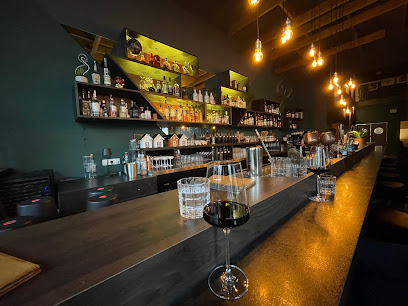
Brick's der Cocktail
Discover the vibrant nightlife of Leipzig at Brick's der Cocktail, where innovative cocktails and a lively atmosphere await every visitor.
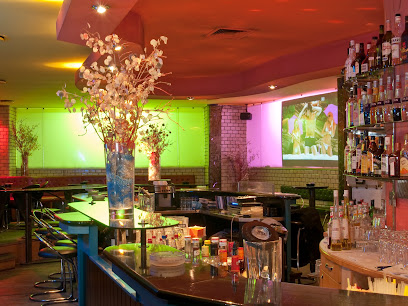
La Boum - Leipzig
Discover La Boum, Leipzig's premier cocktail bar for gourmet burgers and live music, perfect for unforgettable nights in the heart of the city.
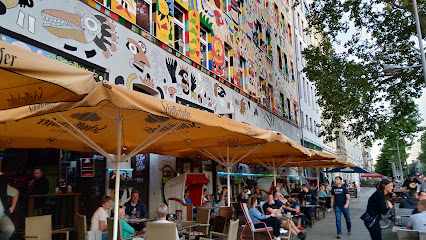
Tonelli's Leipzig
Explore the vibrant nightlife of Leipzig at Tonelli's, a lively live music bar and pub offering delicious food and unforgettable performances.
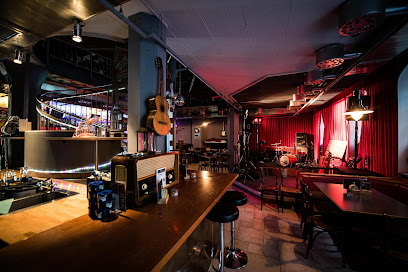
Barfly
Experience the vibrant nightlife of Leipzig at Barfly, where expertly crafted cocktails meet an energetic atmosphere for an unforgettable night out.
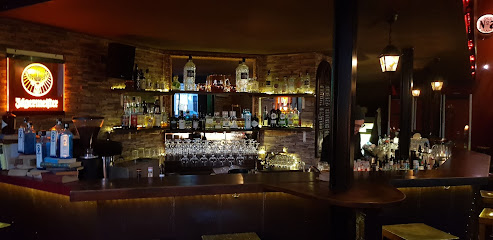
Mephisto Bar
Discover the enchanting Mephisto Bar in Leipzig, where history meets modernity in a cozy atmosphere with exceptional drinks.
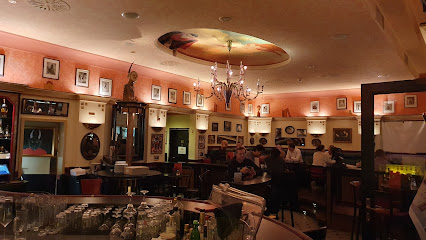
Bar Cabana Dachterrasse - Leipzig
Experience the vibrant atmosphere of Bar Cabana Dachterrasse, Leipzig's rooftop bar with stunning views, exquisite drinks, and delicious cuisine.
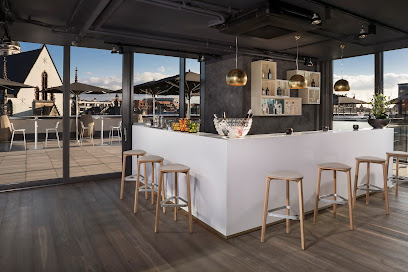
Stoned Bar- the home of punk n roll - Leipzig
Experience the vibrant punk n roll culture at Stoned Bar in Leipzig, featuring live music, delicious food, and an eclectic atmosphere.
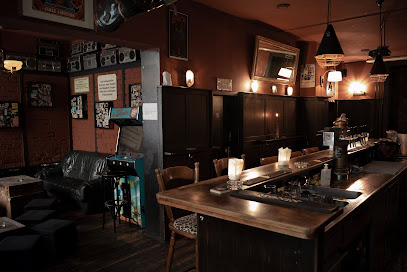
Goldhopfen - Craft Beer Bar Leipzig
Discover Goldhopfen, Leipzig's premier craft beer bar, offering an eclectic selection of brews in a vibrant and welcoming atmosphere.
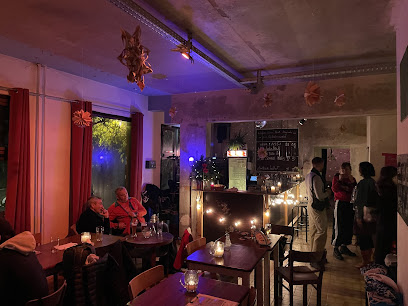
Rorschach Bar
Discover Rorschach Bar in Leipzig, where innovative cocktails and a lively atmosphere create unforgettable nights out.
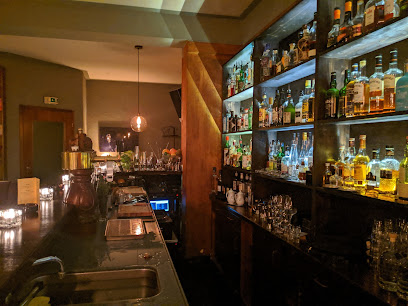
Jamboree - Leipzig
Discover the vibrant nightlife of Leipzig at Jamboree, a lively bar offering a unique drink selection and a welcoming atmosphere.
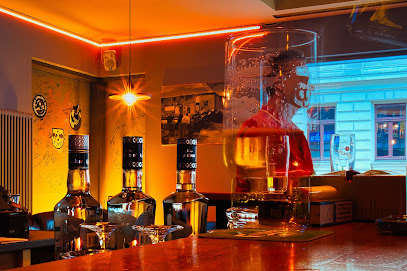
Travel experiences inspired by this city
Explore more travel diariesLocal Phrases
-
- HelloHallo
[ha-lo] - GoodbyeAuf Wiedersehen
[owf vee-der-zay-en] - YesJa
[yah] - NoNein
[nine] - Please/You're welcomeBitte
[bi-teh] - Thank youDanke
[dahn-keh] - Excuse me/SorryEntschuldigung
[ent-shool-dee-gung] - How are you?Wie geht es Ihnen?
[vee gayt es een-en] - Fine. And you?Gut. Und Ihnen?
[goot oont een-en] - Do you speak English?Sprechen Sie Englisch?
[shprek-en zee eng-leesh] - I don't understandIch verstehe nicht
[ikh fer-shtay-e neekt]
- HelloHallo
-
- I'd like to see the menu, pleaseIch würde gerne die Speisekarte sehen, bitte
[ikh vur-deh gehr-neh dee shpy-zeh-kar-teh zay-en, bi-teh] - I don't eat meatIch esse kein Fleisch
[ikh ess-eh kine flysh] - Cheers!Prost!
[prohst] - I would like to pay, pleaseIch möchte zahlen, bitte
[ikh mehrk-teh tsah-len, bi-teh]
- I'd like to see the menu, pleaseIch würde gerne die Speisekarte sehen, bitte
-
- Help!Hilfe!
[hil-feh] - Go away!Gehen Sie weg!
[geh-en zee vehg] - Call the Police!Rufen Sie die Polizei!
[roo-fen zee dee poh-lee-tsai] - Call a doctor!Rufen Sie einen Arzt!
[roo-fen zee i-nehn ahrts] - I'm lostIch habe mich verirrt
[ikh hah-beh meesh feh-reert] - I'm illIch bin krank
[ikh been krahnk]
- Help!Hilfe!
-
- I'd like to buy...Ich würde gerne kaufen...
[ikh vur-deh gehr-neh kow-fen] - I'm just lookingIch schaue nur
[ikh show-eh noor] - How much is it?Wie viel kostet es?
[vee feel kaws-teht es] - That's too expensiveDas ist zu teuer
[dahs ist tsoy toy-er] - Can you lower the price?Können Sie den Preis senken?
[keu-nen zee den prize zeng-ken]
- I'd like to buy...Ich würde gerne kaufen...
-
- What time is it?Wie spät ist es?
[vee shpeht ist es] - It's one o'clockEs ist ein Uhr
[es ist iyn oor] - Half past (10)Halb zehn
[halb tsayn] - MorningMorgen
[mor-gen] - AfternoonNachmittag
[nahch-mit-tahk] - EveningAbend
[ah-bent] - YesterdayGestern
[ges-tern] - TodayHeute
[hoi-teh] - TomorrowMorgen
[mor-gen] - 1Eins
[iyns] - 2Zwei
[tsvai] - 3Drei
[dray] - 4Vier
[feer] - 5Fünf
[fuhnf] - 6Sechs
[zeks] - 7Sieben
[zee-ben] - 8Acht
[ahkt] - 9Neun
[noyn] - 10Zehn
[tsayn]
- What time is it?Wie spät ist es?
-
- Where's a/the...?Wo ist ein/der...?
[vo ist iyn/dehr] - What's the address?Was ist die Adresse?
[vas ist dee ah-dreh-suh] - Can you show me (on the map)?Können Sie mir das zeigen (auf der Karte)?
[keu-nen zee meer das tsee-gen (owf dehr kar-teh)] - When's the next (bus)?Wann kommt der nächste (Bus)?
[vahn kohmt dehr neh-kste (boos)] - A ticket (to ....)Eine Fahrkarte (nach ....)
[i-ne fahr-kar-teh (nahkh)]
- Where's a/the...?Wo ist ein/der...?
History of Leipzig
-
Leipzig was founded in 1165 at the intersection of two significant medieval trade routes: the Via Regia and the Via Imperii. The city's name is derived from the Slavic word 'Lipsk,' meaning 'settlement where the lime trees stand.' It quickly became an important center for trade, culture, and education.
-
The Leipzig Trade Fair, one of the oldest in the world, dates back to the Middle Ages. It gained official recognition in 1190 when the Holy Roman Emperor granted Leipzig the imperial trade fair privilege, allowing merchants to travel freely and conduct business. This event established Leipzig as a key commercial hub in Europe.
-
The Battle of Leipzig, also known as the Battle of Nations, took place from October 16 to October 19, 1813. It was one of the largest battles in Europe prior to World War I and marked a turning point in the Napoleonic Wars. The coalition forces of Russia, Prussia, Austria, and Sweden defeated Napoleon's army, leading to his retreat from Germany.
-
St. Thomas Church has been a significant landmark in Leipzig since its construction in the 12th century. It is famously associated with Johann Sebastian Bach, who served as the church's cantor from 1723 until his death in 1750. Today, the church houses Bach's remains and hosts regular concerts celebrating his music.
-
Founded in 1409, Leipzig University is one of the oldest universities in Germany. It has been a center for education and research for over six centuries, producing many notable alumni, including Johann Wolfgang von Goethe, Friedrich Nietzsche, and Angela Merkel. The university's historic buildings and vibrant academic atmosphere are integral to Leipzig's cultural life.
-
Leipzig played a crucial role in the Peaceful Revolution of 1989, which led to the fall of the Berlin Wall and the reunification of Germany. The Monday Demonstrations, which began at St. Nicholas Church, saw thousands of citizens peacefully protest against the East German government. These demonstrations were pivotal in bringing about political change in the country.
-
In the 19th century, Leipzig experienced significant industrial growth, becoming a major center for publishing, textiles, and machinery. The city's industrialization attracted a diverse population, contributing to its rich cultural tapestry. The Leipzig Cotton Mill and the Monument to the Battle of the Nations are enduring symbols of this era.
-
Throughout the 20th century, Leipzig underwent numerous transformations, from the devastation of World War II to the challenges of the Cold War era. Despite these hardships, the city preserved its cultural heritage and emerged as a vibrant, modern metropolis. Today, Leipzig is celebrated for its dynamic arts scene, historic architecture, and progressive spirit.
Leipzig Essentials
-
Leipzig is well-connected by multiple modes of transportation. The Leipzig/Halle Airport (LEJ) serves as the main international gateway, located about 18 kilometers northwest of the city center. From the airport, travelers can take the S-Bahn (S5 or S5X) to reach the city center in approximately 15 minutes. Additionally, Leipzig Hauptbahnhof, one of the largest railway stations in Europe, offers extensive rail connections to other major German cities and neighboring countries. For those driving, Leipzig is accessible via the A9 and A14 motorways.
-
Leipzig boasts an efficient public transportation system, including trams, buses, and regional trains, all operated by the Leipziger Verkehrsbetriebe (LVB). The tram network is particularly extensive, making it easy to navigate the city. Tickets can be purchased at automated machines, and day passes are available for unlimited travel within specified zones. Taxis and ridesharing services like Uber are also available. For a more eco-friendly option, consider renting a bicycle from one of the many bike-sharing stations around the city.
-
The official currency in Leipzig is the Euro (EUR). Credit and debit cards are widely accepted in hotels, restaurants, and shops, though it's advisable to carry some cash for smaller establishments and markets. ATMs are plentiful and can be found throughout the city. Contactless payment methods, including mobile payments, are also increasingly popular.
-
Leipzig is generally a safe city for tourists, but it's always wise to take standard precautions. Avoid walking alone at night in poorly lit areas and keep an eye on your belongings in crowded places like markets and public transportation. Specific areas with higher crime rates targeting tourists include parts of the Connewitz neighborhood. Always stay vigilant and aware of your surroundings.
-
In case of an emergency, dial 112 for immediate assistance, which connects you to fire, medical, and police services. For non-emergency police matters, you can dial 110. Most emergency responders in Leipzig speak English. It is advisable to have travel insurance that covers medical emergencies. For minor health issues, pharmacies are available throughout the city and often have English-speaking staff.
-
Fashion: Do dress smart-casual, especially when dining out or attending cultural events. Avoid overly casual attire like flip-flops and tank tops in such settings. Religion: Do respect local customs in religious sites. Always dress modestly and speak quietly. Public Transport: Do validate your ticket before boarding. Don't eat or drink on public transport. Greetings: Do greet people with a firm handshake. A slight nod is also considered respectful. Eating & Drinking: Do try local specialties like Leipziger Lerche and Gose beer. Don't rush through your meal; dining is often a leisurely experience.
-
To experience Leipzig like a local, visit the weekly farmers' markets such as the one at Augustusplatz for fresh produce and local delicacies. Explore hidden gems like the Plagwitz district, known for its vibrant art scene and unique cafes. For a taste of local culture, attend a concert at the Gewandhaus or an opera at the Leipzig Opera House. Don't miss a stroll through the historic passages and courtyards around the city center, such as Mädler Passage.
Trending Landmark in Leipzig
-
Monument to the Battle of the Nations
-
Marktplatz Leipzig
-
Clara-Zetkin-Park
-
Leipzig Panometer
-
St. Nicholas Church
-
St. Thomas Church
-
Mädler-Passage
-
Museum of fine arts
-
Botanical Garden Leipzig
-
Forum of Contemporary History Leipzig
-
Stadtgeschichtliches Museum Leipzig, Altes Rathaus
-
Mendelssohn-Haus
-
Mendebrunnen
-
Russische Gedächtniskirche
-
Bach-Museum Leipzig
Nearby Cities to Leipzig
-
Things To Do in Dresden
-
Things To Do in Erfurt
-
Things To Do in Potsdam
-
Things To Do in Karlovy Vary
-
Things To Do in Berlin
-
Things To Do in Plzeň
-
Things To Do in Prague
-
Things To Do in Hannover
-
Things To Do in Nuremberg
-
Things To Do in Wurzburg
-
Things To Do in Kutná Hora
-
Things To Do in Rothenburg ob der Tauber
-
Things To Do in Hradec Králové
-
Things To Do in Szczecin
-
Things To Do in Frankfurt




















